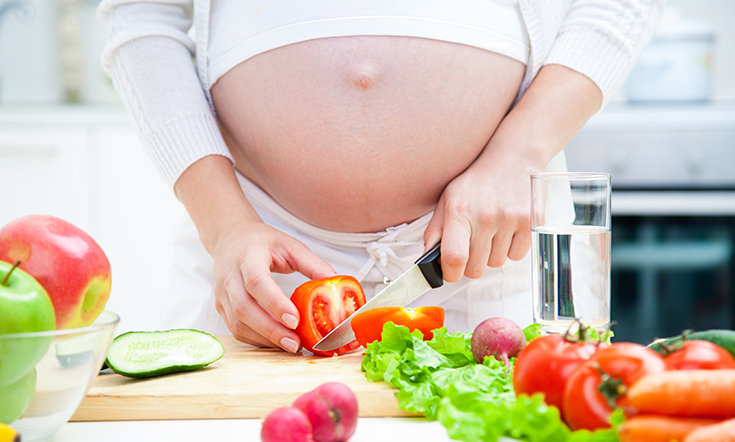

Discovering your pregnant is an exciting time but it can also mean a minefield of information, as you set about providing a healthy home for your growing baby.
Fortunately, there’s no need to deprive yourself of all the good things you love to eat – just a few small changes in your lifestyle is all that’s required for a healthy pregnancy, ensuring both you and your baby get the nutrients you both need.
Listeria and foods to avoid
Listeria is an illness caused by eating foods contaminated by the bacteria, Listeria monocytogenes.
While not life-threatening for most people, Listeria can be dangerous for pregnant women and in particular their unborn babies.
The bacteria can infect the placenta, the amniotic fluid, and the baby, potentially causing miscarriage or stillbirth. Infected babies who do survive are often born prematurely.
Certain foods are considered to be of high risk of Listeria contamination and best avoided during pregnancy, including:
- Soft white cheeses
- Pate
- Unpasturised dairy products
- Cold meats
- Dried/fermented sausages
- Raw seafoods
- Smoked seafood (non-canned)
- Pre packed and prepared salads
- Soft serve ice-cream.
H2O is the Way to Go!
One of the most important diet tips for a healthy pregnancy is to make sure you stay hydrated.
Not only will drinking six to eight glasses or bottles of water a day keep your skin looking great while you’re pregnant, but it can also help to prevent early labor and lessen some of those uncomfortable symptoms such as constipation and bloating that are common during pregnancy.
Bring on the Fruits and Veggies
A minimum of 2-3 servings of citrus fruits and dark green, leafy vegetables each day will provide an exceptional source of folic acid which is an essential element that helps in the prevention of miscarriage and birth defects such as spina bifeda.
Folic acid works by maintaining and lowering the level of homocysteine in your bloodstream which is known to be a contributing culprit in those unfortunate circumstances.
Power-Up with Protein
Protein keeps your cells healthy and will result in a healthy start for your newborn as well.
The recommended amount of protein intake for a pregnant woman is at least 75 grams a day.
Foods that can help you achieve that amount are grains and pasta as well as eggs and potatoes.
Protein can also protect you from headaches, edema, hypertension and other pregnancy-related disorders. Iron and calcium-rich foods like lean meats and fish, as well as milk and other dairy products such as yogurt and cheese, are also important.
Indulge in Moderation
Everyone knows cravings are a big part of pregnancy and no one expects you to completely cut sugar and fat out of your diet while you’re pregnant.
As a matter of fact, you need certain amounts of fat to stay healthy. So, it’s okay to indulge in some of your favourite junk foods as long as you’re smart about it – everything in moderation.
Alcohol and caffeine
Having a baby on board doesn’t mean you have to give up your morning coffee, chocolate or the occasional soft drink.
Although many women choose to avoid caffeine completely, experts believe that moderate caffeine intake (150 mg-250 mg per day) is safe during pregnancy.
While most women and babies have no negative health effects from low to moderate caffeine consumption, caffeine sensitivity varies in each individual, so if you’re caffeine sensitive, you might want to avoid it during pregnancy.
As for alcohol though, current guidelines suggest no alcohol consumption is the safest option during pregnancy.






















